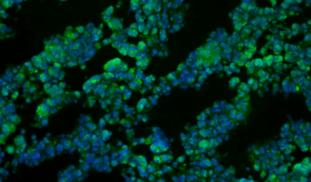Please wait...
About This Project
Malignant Brain Tumors will kill over 13,000 cancer patients this year in the United States alone; brain tumors being the leading cause of death due to solid tumors in children. However, new clinical trials have begun investigating high fat (Ketogenic) diets as potential and promising therapeutics. We want to look at how these high-fat diets weaken tumor cells to radiation, potentially making brain tumors respond better to radiation therapy.
More Lab Notes From This Project

Browse Other Projects on Experiment
Related Projects
Disrupting cancer cell signaling through drug discovery
Most cancer-related deaths are caused by metastasis, the spread of cancer cells to distant tissues. This...
CaniSense– AI-powered blood test for early cancer detection in dogs
Cancer is the leading cause of death in dogs, yet no reliable methods for early screening exist. At testblu...
Shutting down cancer’s recycling system with exosome-based therapy
Pancreatic cancer is one of the deadliest cancers because its cells survive by recycling their own components...


